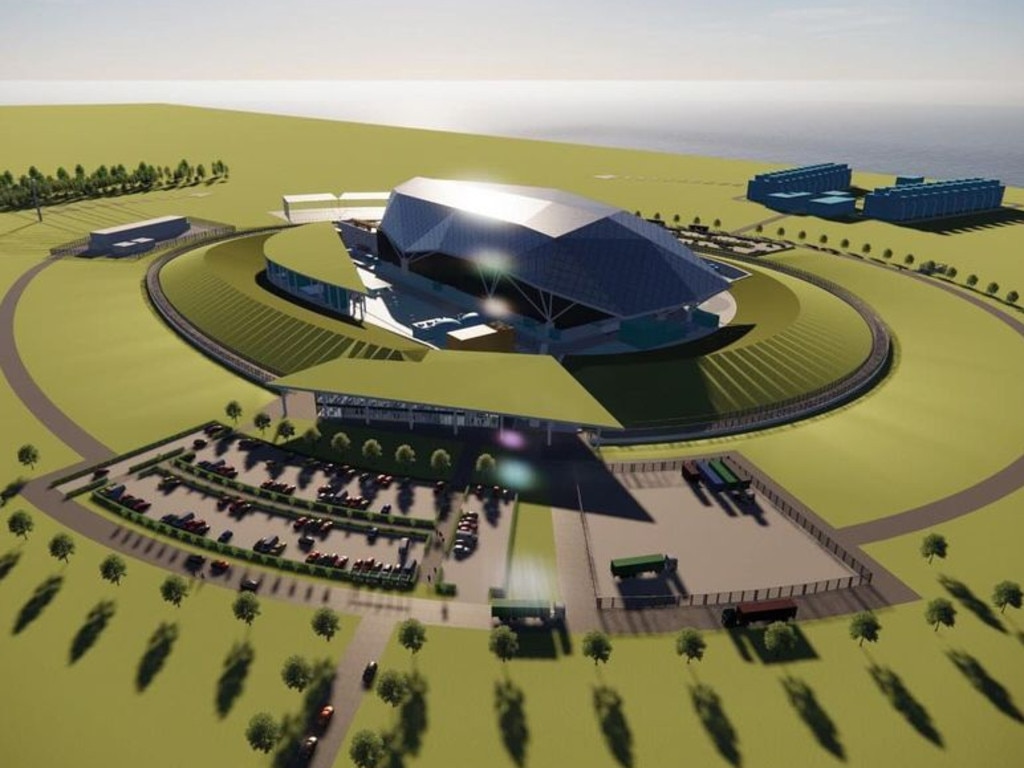Poll shows majority of Aussies support nuclear power plan
Six in 10 Australians back nuclear energy, exclusive new polling shows. See what the nation really thinks about the energy source, including the communities which could host a reactor in their backyards.
Clare Armstrong
National political editor
Follow
@ByClare
3 min read
June 24, 2024 - 4:30AM
Six in 10 Australians say they support nuclear energy as a part of the nation’s energy mix in a boost for Opposition Leader Peter Dutton’s ambitious plan to build seven power plants by 2050.
Mr Dutton’s plan was also bolstered by most of the nominated regions supporting having a reactor in their back yard, led by the Latrobe Valley with almost 60 per cent of those surveyed there comfortable with the idea.
A snapshot survey of 923 randomly selected people conducted across the weekend after the Coalition announced its energy plan found about 60 per cent of voters said nuclear power “has a place” in Australia’s future energy mix.
Mr Dutton last week announced if elected he would pursue a plan to build seven nuclear plants at the sites of retiring coal-fired power stations, including the Latrobe Valley in Victoria, Hunter Valley in NSW, South Burnett and Gladstone region of Queensland, and Port Augusta in South Australia.

The survey included just over 100 people on average in each of these five regional areas, plus 100 people in Melbourne, Sydney, Adelaide and Brisbane.
In every location, except Melbourne, there was majority support for an Australian nuclear energy industry, but this backing fell away somewhat when respondents were specifically asked if they would be “comfortable with a nuclear reactor being built in your region”.
Many Australians living where coal has long been the dominant source of employment and economic revenue said they were supportive.
In Victoria, Morwell man Clinton Saffron is in the metalwork industry, and said he believed nuclear power would bring welcome economic development to the region.
“It’s renewable power – it’s better than the old, dirty that we have been digging out of our valley for years,” Mr Saffron said.
“I think it’s better for the environment – I think it’s better for the environment in that sense, waste is the issue.
“Myself and my father are in the metal work industry – he has serviced all these power stations as a boiler maker.
“They are building the furnaces and boilers and old steam pipes that goes with it – they have taken it out of our valley.
“We have got no industry left – most of us sit at home with no jobs because there’s nothing. It will give us something to do again.”
Traralgon man Bruce Dell, 60, said the Latrobe Valley had the infrastructure necessary to build nuclear.
“We have got the heavy industry here, it makes sense to build it in the valley,” he said.
Lakes Entrance woman Theresa Jordan said she was “100 per cent” supportive of nuclear power coming to the valley.
“With what we have going on in our region – it would be a great source of power. The coal mine industry has had a huge impact on so many families and livelihood and to bring (nuclear power) into here and to bring more jobs into our town would be amazing,” she said.
In South Australia, Dean Sellars worked at the now shuttered Northern Power Station just outside Port Augusta for 33 years, and said he believed the Coalition’s nuclear plans would be unsuccessful, mostly due to the cost.
But Port Augusta real estate agent Darren Sherriff, 53, said Australia should embrace the Coalition’s proposed nuclear power plans.
“We’re one of the only countries that hasn’t gone nuclear yet, to our own great detriment,” he said.
A separate poll again found that support varied, especially between city dwellers and in the region a reactor could be built. Just 39 per cent of Melbourne residents supported nuclear power in Australia’s energy mix.
However, this jumped to 71 per cent among Latrobe Valley residents, where Mr Dutton has said a reactor could be located.
When asked if respondents were comfortable with a reactor in Victoria, 28 per cent of city respondents said yes.
This jumped to 59 per cent of Latrobe Valley residents.
In response to the mixed results on support, a state government spokesman said: “Our position is clear, we will not allow a toxic nuclear power plant in our state.”
He described it as “waiting decades and spending billions on a half-baked plan drawn up on the back of a napkin”.
